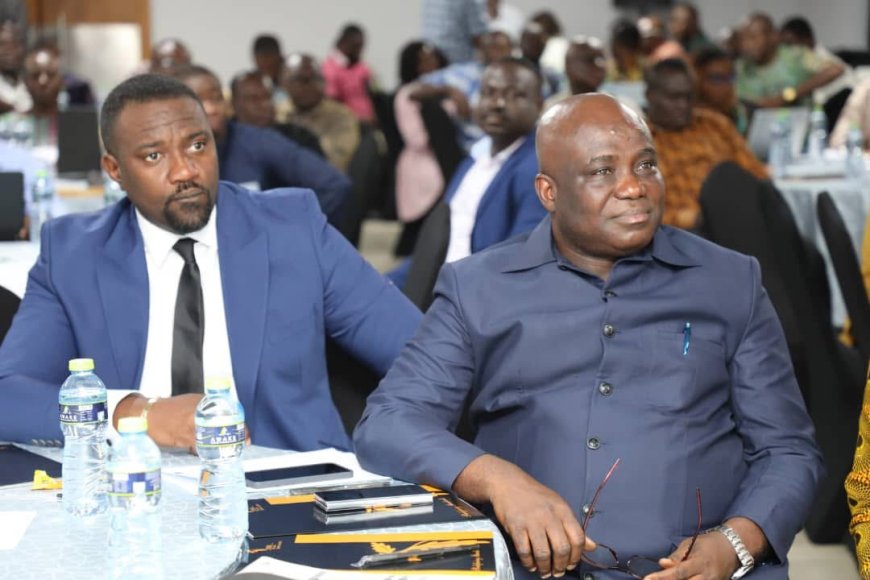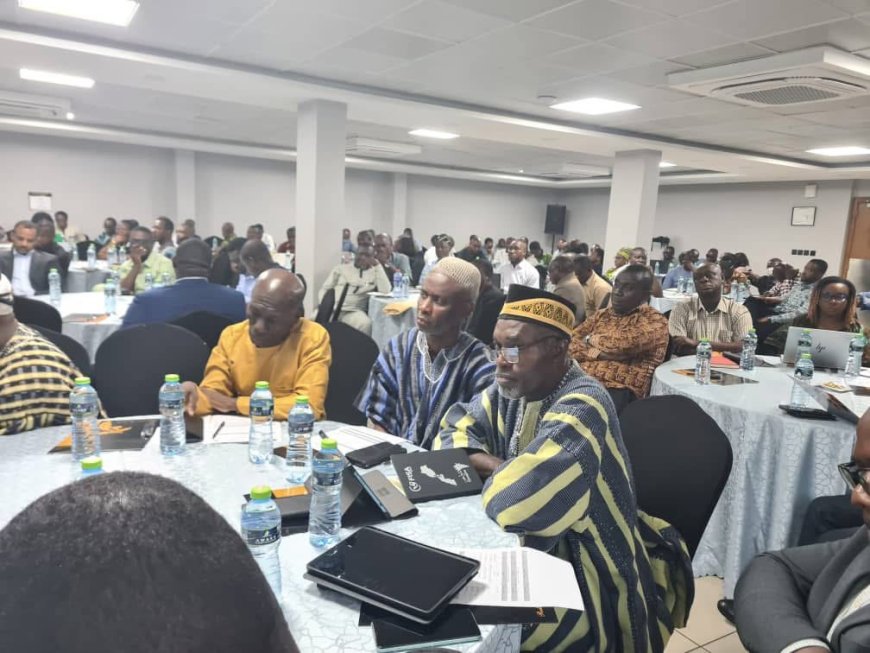Hon. Eric Opoku, Minister for Food and Agriculture, Leads the Way at Feed Ghana Programme Validation Workshop in Accra

Accra, 29th May, 2025- The Minister for Food and Agriculture of Ghana, Hon. Eric Opoku, delivered an inspiring address at the National Validation Workshop for the Feed Ghana Programme (FGP), a flagship initiative aimed at transforming the country’s agricultural sector and ensuring food security for all Ghanaians.
Speaking before a diverse gathering of development partners, ministry officials, private sector representatives, civil society members, academia, farmers, and media personnel, the Minister emphasized the importance of collective effort in shaping Ghana’s agricultural future. “Today’s workshop is more than a validation exercise; it is an opportunity for us all to take ownership of the Feed Ghana Programme, fine-tune its strategies, and ensure it is practical, inclusive, and results-oriented,” he stated.

The Minister praised the dedication and professionalism of the Ministry’s technical team and the collaborative efforts involved in developing the comprehensive document. He also expressed gratitude to key international partners AGRA, IFAD, and FAO for their financial support in preparing this transformative blueprint.
Highlighting the challenges facing Ghana’s agriculture, the Minister pointed out issues such as low productivity across major value chains, reliance on imported foods, limited access to irrigation and mechanization, underutilized land due to high development costs, and weak agro-industrial linkages. “The Feed Ghana Programme is a bold, structured response to these deep-rooted challenges. It embodies our collective vision to build a resilient, sustainable, and inclusive food system that generates jobs, curbs imports, and drives agro-industrial growth,” he said.
The Programme is designed around nine strategic, interconnected sub-programmes, each targeting critical areas such as crop and livestock development, farmer service centers, agricultural financing, infrastructure, and institutional capacity building. Central to its mission is empowering farmers—especially smallholders, women, youth, and persons with disabilities—by encouraging them to organize into cooperatives and actively participate in value chain activities.
The Minister called on all stakeholders—farmers, processors, financiers, researchers, development partners, and the private sector—to collaborate and contribute their expertise towards making the FGP a practical and sustainable policy framework. “Your participation is vital. With your collective ingenuity, we can craft a policy that not only feeds our nation but also empowers our people and transforms our economy,” he urged.
Reaffirming the government’s commitment, the Minister assured that resources will be mobilized for effective implementation, policies aligned across sectors, and an enabling environment fostered for private sector growth. “We have what it takes to achieve this vision. Let us build together a Ghana where food security is a reality, livelihoods are improved, and the economy is liberated from poverty,” he concluded.
As the workshop continues, all participants are encouraged to deliberate actively and ensure that the Feed Ghana Programme emerges not just as a validated document but as a practical, owned, and impactful roadmap for Ghana’s agricultural renaissance.




 HENRY GERCHI
HENRY GERCHI 












